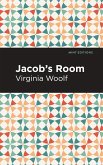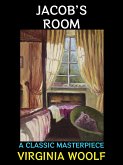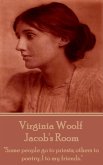Virginia Woolf's third novel, "Jacob's Room" (1922) differs from its two predecessors in its experimental, abstract approach to writing. Jacob Flanders' life is examined largely through the impressions and accounts of others in his life, mostly women, creating a portrait of a young man both representative of and victimized by Edwardian society. The novel coincided with Woolf's emerging interest in feminism and is critical of the righteous patriarchy of "the other side", "the men in clubs and cabinets".
Dieser Download kann aus rechtlichen Gründen nur mit Rechnungsadresse in A, D ausgeliefert werden.









